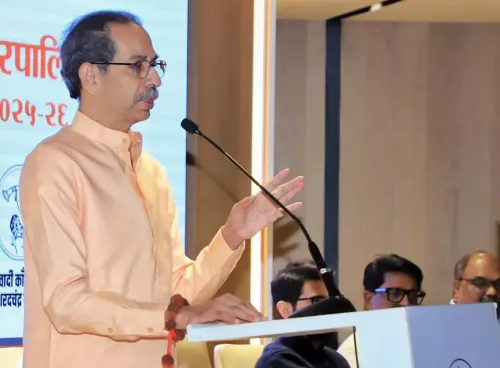Why is there a Delay in Implementing Power Fences for TN Farmers?

Synopsis
Key Takeaways
- Regulations are crucial for wildlife protection.
- Delay in implementation affects farmer livelihoods.
- Coordination between departments is lacking.
- Cost concerns are significant for farmers.
- Subsidies could improve crop protection efforts.
Chennai, July 23 (NationPress) Two years have passed since the Tamil Nadu government issued a Government Order (GO) to govern the installation of power fences, including solar-powered variants, intended to safeguard wildlife. Yet, the associated regulation — Tamil Nadu Power Fences (Registration and Regulation) Rules, 2023 — remains unimplemented.
This delay has placed both farmers and forest officials in a precarious situation, heightening worries regarding safety, adherence to regulations, and ongoing human-wildlife conflicts.
The regulations were established to ensure that fences, particularly solar-powered ones, comply with safety standards to avert the electrocution of wild animals. However, the postponement in enforcement has caused confusion, especially among farmers who have either set up or plan to set up these fences to shield their crops from wildlife.
A forest range officer in Coimbatore noted that under the forthcoming rules, farmers are required to utilize Bureau of Indian Standards (BIS)-certified energisers and adhere to stringent installation guidelines.
“More than 20 farmers in this range have sought permission to install solar fences, yet many are concerned that complying with the new standards would substantially raise their expenses,” the officer remarked.
Reportedly, over 80 farmers from different ranges have filed applications — both under the new guidelines and the previous framework — for solar fence registration. Nevertheless, there has been minimal clarity or advancement from the authorities.
P. Kandasamy, General Secretary of the Farmers Association, criticized the forest department’s erratic strategy. “There appears to be a disconnect between the forest department and Tangedco. While we share a concern for wildlife, the burden of responsibility cannot solely lie with farmers. It is the forest department's obligation to protect wild animals,” he stated, advocating for a stable solution to the human-animal conflict.
Farmers also voiced their dissatisfaction regarding the lack of feedback from the forest department.
A grower from Periyanaickenpalayam shared that he applied for registration under the new guidelines two years ago but has yet to receive any communication.
Conversely, another farmer, C. Murugadas from Theethipalayam, questioned the rationale behind restricting fencing to 240 meters. “How can I defend my 6.5-acre banana plantation from elephants with just 240 meters of fencing?” he inquired.
“I’ve already invested Rs 4.5 lakh to erect 1,750 meters of fencing. If the government could offer at least a 50% subsidy, many farmers like me would be better equipped to protect our crops.”
As the delay continues, both the safety of wildlife and the livelihoods of farmers face jeopardy, with no clear solution in sight.










